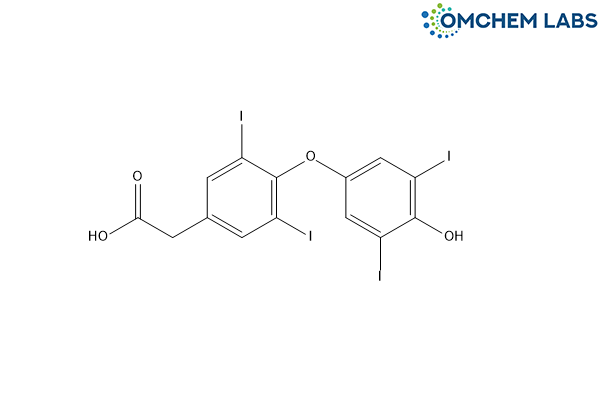When Thyroid Treatment Turns Toxic: The Hidden Dangers of Impurities in Levothyroxine Tablets
When Thyroid Treatment Turns Toxic: The Hidden Dangers of Impurities in Levothyroxine Tablets
Blog Article
Major Side Effects of Impurities in Levothyroxine Tablets
Levothyroxine is a synthetic thyroid hormone widely prescribed for hypothyroidism and other thyroid-related disorders. Because it's a narrow therapeutic index (NTI) drug, even minor variations in dose or purity can lead to serious—and sometimes life-threatening—health consequences.
When impurities are present, they can disrupt the delicate balance of thyroid hormone levels in the body. This can lead to underdosing or overdosing, each of which comes with its own risks.
1. Underdosing Effects (Due to Degradation Impurities or Inactive API)
- Fatigue and weakness
- Depression or mood changes
- Weight gain
- Cold intolerance
- Bradycardia (slow heart rate)
- Cognitive impairment (brain fog)
- Menstrual irregularities
- Goiter development (enlargement of the thyroid gland)
- Myxedema coma (rare but life-threatening hypothyroid crisis)
2. Overdosing Effects (Due to Excess API or Active Impurities)
- Palpitations or irregular heartbeat
- Tachycardia (fast heart rate)
- Anxiety, restlessness, and insomnia
- Unintentional weight loss
- Heat intolerance and sweating
- Increased risk of osteoporosis
- Muscle weakness
- Chest pain or angina
- Heart failure in severe cases
3. Other Risks Related to Impurities
- Allergic reactions from unknown chemical impurities or residual solvents
- Drug interactions if reactive impurities affect metabolic pathways
- Long-term toxicity from uncharacterized degradation products
- Reduced efficacy, causing poor disease management
- Fatal outcomes in extreme cases, particularly in elderly patients or those with cardiac conditions
What Are Impurities in Pharmaceuticals
Impurities are unintended substances that may be present in active pharmaceutical ingredients (APIs) or finished drug products. These can arise from:
- Raw materials
- Synthesis processes
- Degradation over time
- Storage conditions
Identifying and managing these impurities ensures:
- Patient safety
- Regulatory compliance
Why Impurity Profiling Matters
Impurity profiling refers to the detection, identification, and analysis of unwanted substances. This process is essential for several reasons:
- Safety First: Some impurities can be toxic. Profiling helps identify and minimize these risks.
- Regulatory Approval: Authorities like the FDA and EMA require detailed impurity profiles for drug approval.
- Quality Control: Monitoring ensures consistency and reliability across production batches.
OMCHEM LABS: A Global Leader in Impurity Profiling
Founded with a vision to elevate pharmaceutical standards, OMCHEM LABS has become a trusted name in impurity profiling. Backed by state-of-the-art R&D facilities and experienced scientists, the company delivers:
- Technical excellence
- Regulatory insight
- Global support
They specialize in:
- Custom Impurity Synthesis
– Tailored impurity development for antibiotics, steroids, and both chiral and achiral drugs.
- Custom Impurity Synthesis
- Certified Reference Standards (CRS)
– High-purity benchmarks for analytical testing with a vast impurity catalog and growing chemical database.
- Certified Reference Standards (CRS)
Analytical Expertise at Its Best
OMCHEM LABS provides advanced analytical capabilities to ensure precision in impurity analysis, including:
- Method Development & Validation
– Creating and validating techniques for trace-level impurity detection.
- Method Development & Validation
- Stability Testing
– Studying how drug compounds degrade and the impurities they form over time
- Stability Testing
- Structure Elucidation
– Using advanced instrumentation to determine the molecular structure of unknown impurities.
- Structure Elucidation
These services help companies maintain global compliance and ensure safe, high-quality pharmaceutical products.
Supporting Regulatory Success
Navigating global pharmaceutical regulations can be complex. OMCHEM LABS supports clients with:
- Regulatory documentation & dossier preparation
- Submissions for Drug Master Files (DMFs) and Abbreviated New Drug Applications (ANDAs)
- Expertise to meet international regulatory expectations
A Global Partner You Can Trust
OMCHEM LABS holds various international certifications and has been audited by leading agencies, reflecting their dedication to:
- Quality
- Compliance
- Global pharmaceutical standards
Levothyroxine impurities can form during API synthesis and formulation due to degradation reactions, such as oxidation, hydrolysis, or halogenation, which occur under specific conditions like temperature, pH, or exposure to light. These impurities may arise from incomplete reactions or the interaction of the active ingredient with excipients during formulation.

Levothyroxine 3,5-Diiodo 4-Hydroxybenzoic Acid
CAS No: 618-76-8

Levothyroxine EP Impurity D
CAS No: 67-30-1

Levothyroxine EP Impurity H
CAS No: 2055-97-2

Levothyroxine Ethyl Ester
CAS No: 76353-71-4

Levothyroxine Hydroxyphenoxy Aldehyde Impurity
CAS No: 2828-49-1

Levothyroxine Impurity C
CAS No: 51-24-1

Levothyroxine Methoxyphenoxy Aldehyde Impurity
CAS No: 69240-57-9

Levothyroxine N-Acetyl Impurity
CAS No: 26041-51-0

Levothyroxine N-Formyl Impurity
CAS No: 671235-41-9

Levothyroxine N-Methylamide
CAS No: 2088032-52-2

Levothyroxine T4-Formic Acid-N-Methylamide
CAS No: 2088032-78-2
Final Thoughts
Impurity profiling is not just a regulatory checkbox—it’s a vital part of pharmaceutical safety, effectiveness, and trust. With:
- Unmatched expertise
- Global presence
- Relentless focus on quality
OMCHEM LABS continues to lead the way in impurity profiling and reference standard development for the pharmaceutical industry. Report this page
